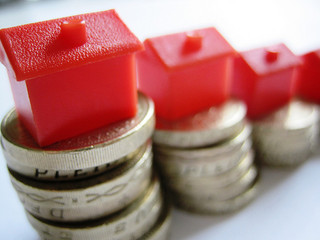Happy 3-year houseversary! As we celebrate 3 years of DIY fun, we’re reminiscing and thinking of all the homes we almost got. If you came here wondering why your house isn’t selling, don’t worry – almost everything on this list is fixable!
29 Reasons Why I Didn’t Buy Your House
1. You highlighted the house’s storage problems

Need some ideas for that small pantry?
2. Your hot tub was gross and moldy
3. Speaking of mold, you left a couple of mold-filled fridges in the garage
4. You left your chamber pot in plain sight
5. Your garage was packed with clutter
6. You hung a “DO NOT FLUSH” sign on your toilet… and the oven, and the sink (thanks for the warning, I think…)
7. You showed me your woodworking and carpentry skills
8. Your home was empty except for the abandoned car in the garage
9. You were home when I was viewing your house and it was super. awkward.
10. You wallpapered with family photos and it was super. awkward.
11. Cool World? That movie was trippy.
12. Your bathroom was actually two rooms: a giant tub room and a postage-stamp sized toilet room
13. There was rust in the electrical outlets
14. You showed me your grandchild’s depiction of your vices
15. You unsuccessfully tried to cover a hole in the floor with an electronic keyboard
16. Your roof had enough leaves, pine needles, and branches on it to build another tree
17. You left your remodel half finished without enough supplies to finish the job
18. Your house reeked of cat litter
19. There was a giant hole in the garage ceiling that you couldn’t explain
20. You let me see where “The Incident” happened
21. You didn’t get a building permit for that otherwise very nice looking basement addition
22. Your light fixtures were dangling from makeshift chains
23. You showed me your DIY electrical skills
24. There was a door locked from the inside
25. Dirty clothing hung from every piece of furniture and blanketed the floor
26. You didn’t tear out the 80’s when you had the chance
27. You showed off evidence of water damage
28. You countered our at-list offer with a $25k increase (that’s not how it works)
29. Your walls look like a circus tent crashed into an orchestra… oh wait, I did buy this house! :)
Pretty crazy, huh? Nearly all of these come with an implied “… and you didn’t lower your list price accordingly.”
At the right price, most of these are forgivable or heck, welcomed – we were specifically looking for a property in need of repair. These sellers either left money on the table or frustrated themselves trying to sell a needy house at an unreasonable price.


















